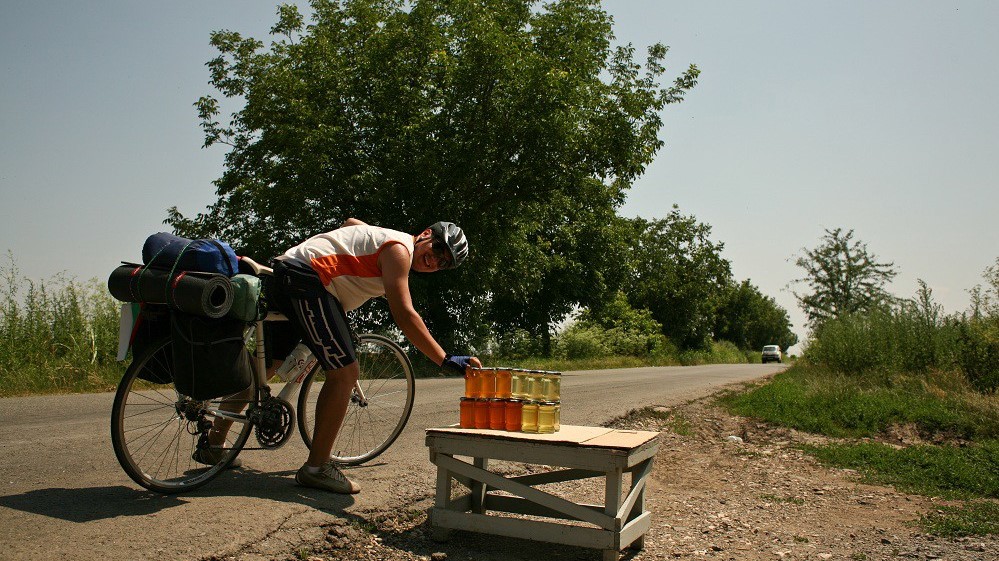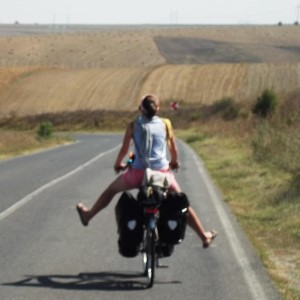
Romanian Cyclists’ Federation secures more than €120 million for EuroVelo in Romania’s COVID-19 Recovery Plan
The Romanian government has earmarked more than €120 million for EuroVelo and cycling infrastructure in its COVID-19 Recovery Plan following the advocacy of the Romanian Cyclists’ Federation. This success story shows the concrete results that a networked and research-based campaign can bring for cycling.
In March, the Romanian Cyclists’ Federation (FBR) scored a big victory when the Romanian government decided to include substantial investments in cycling in its COVID-19 Recovery Plan.
After weeks of advocacy by FBR, Romania’s draft National Recovery and Resilience Plan (NRRP), which sets out how money from the EU’s Recovery and Resilience Facility (RRF) will be spent, now includes more than €120 million in cycling investments with an entire section dedicated to EuroVelo. If adopted, this would represent a major boost to cycling in Romania.
 Cycling in COVID-19 Recovery Plans
Cycling in COVID-19 Recovery Plans
EU Member States are set to submit their NRRPs to the European Commission by 30 April to explain how they will spend money from the RRF, the centrepiece of NextGenerationEU, the EU’s €750 billion COVID-19 recovery instrument. Some Member States have already included cycling investments in their recovery plans, which must dedicate at least one third of funds to climate action, while others haven’t.
In the first draft NRRP published by the Romanian government in November 2020, cycling was not even mentioned once. But after a targeted advocacy campaign by FBR, a member of the European Cyclists’ Federation (ECF), this has now changed.
A Story of Successful ECF Collaboration
At the end of February 2021, the Romanian Cyclists’ Federation asked ECF and fellow member organisations to share their expertise on cycling infrastructure, for instance information on the costs and building standards of different types of cycling paths.
FBR was planning a concrete proposal for Romania’s NRRP and, enriched by the input it received, FBR proceeded with an advocacy campaign aimed at the authorities responsible for the Recovery Plan, providing crucial information about legislation, policies and funding for cycling infrastructure.
On 19 March, the draft Recovery Plan was discussed in the Romanian parliament and the cycling investments proposed by FBR were retained. Soon after, a new and longer draft was published by the Romanian government, containing an entire section dedicated to EuroVelo, the European cycle route network, and other European cycle route investments, confirming the success of FBR’s advocacy.
More Than €120 Million for Cycling in Romania
The latest draft NRRP now contains a €120 million component expressly dedicated to the expansion of cycle routes called “Romania Velo – encourage walking and cycling for transport and tourism” within the Plan’s main pillar of “Social and Territorial Cohesion”.
The main objectives of this component are to build, operationalise and promote medium and long cycle routes, including EuroVelo routes, in order to create a national network to encourage cycling and commuting, and to design a legal framework for the management and development of green infrastructure to exploit Romania’s great potential for active tourism and ecotourism.
Specifically, the component proposes:
- A deep revision of the legislation in force, promoting a normative act on cycling routes (for instance, the adoption of signposting standards)
- The construction of up to 3,000 km of cycle-tourism tracks, with the completion of EuroVelo 6 (Atlantic-Black Sea), EuroVelo 13 (Iron Curtain Trail) and other European cycling routes
- Support for the Via Transilvanica route and other projects initiated by civil society and local public administrations
Furthermore, the “Social and Territorial Cohesion” pillar contains indirect funds for cycling in the components called "Resilience fund for local authorities" (€4 billion) and "Attractive Romania" (€400 million), which include, respectively, the development of urban cycling infrastructure and the widening of the legislative framework for walking, cycling, nautical (non-motorised) and equestrian paths.
All these investments fully contribute to the green transition, to pollution reduction and to the economic development of communities and tourism, respecting the principle of “Do No Significant Harm”, which means that all projects must not go against climate and environmental protection.
The Romanian Cyclists’ Federation remains in contact with the ministries in charge of the NRRP to discuss how to further improve the Recovery Plan, including by outlining the resources to be allocated for specific projects and making targeted expenditure plans.
Lessons Learned
Unfortunately, the largest part of the €48.3 billion envisaged for mobility investments by Member States in their draft Recovery Plans so far is still earmarked for the expansion of “traditional” infrastructure such as roads and railways (€9 billion), as observed by the Wuppertal Institute in their Green Recovery Tracker project.
But the ecological transition and long-term changes in mobility behaviour will only happen with truly audacious, transformative plans that go beyond simply financing the existing mobility system. As stressed by the European Commission, this will require the right balance between reforms and investments and the translation of these into concrete milestones and targets to guide disbursements.
The EU’s Recovery and Resilience Facility represents a once-in-a-lifetime opportunity to push national authorities to invest massively in cycling. Together with ECF partners Cycling Industries Europe and CONEBI and ECF members and networks, we are working hard to see more cycling investments like Romania’s in the Recovery Plans of other Member States. And we hope that this positive collaboration between ECF and its members, and between members themselves, can serve as an example and become standard practice for designing policy in Europe.
Do you have a success story from your country? Don’t hesitate to send it our way!
Cover Photo Credit: Cosmin Popan
Network/Project Involved:
Contact the author
Recent news!
Upcoming events
Contact Us
Avenue des Arts, 7-8
Postal address: Rue de la Charité, 22
1210 Brussels, Belgium









